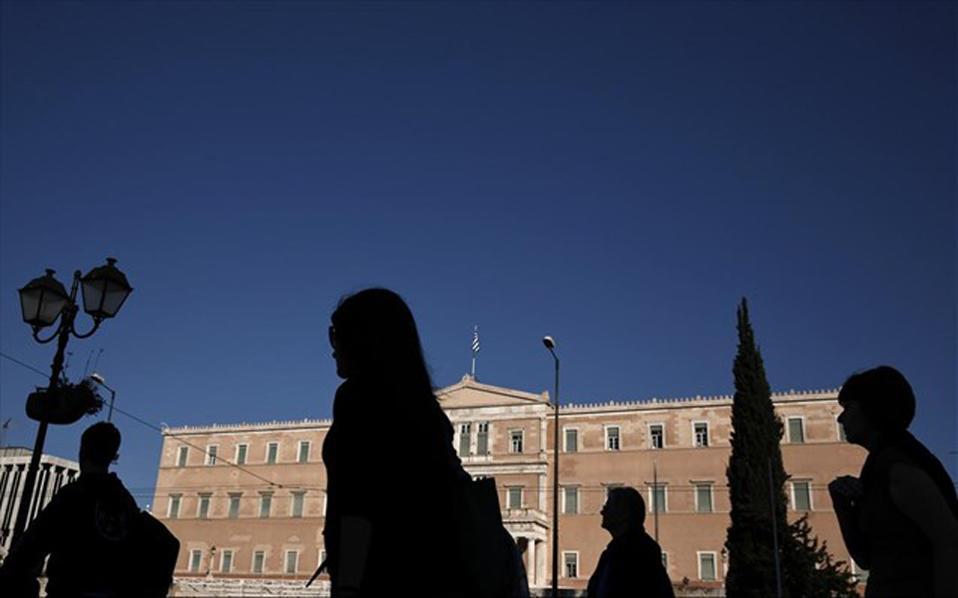Why the hatred?

This country has paid a terrible toll in blood and hate in the past, and when other nations are in the grip of civil strife and war, today’s political disputes in Greece resemble shadow theater. But the shadows are on a red backdrop. The endless quarrels draw continually on the dictionary of violence, war, betrayal – on a past that we will not leave in peace, which does not let us rest. This is the reason for concern: When there is no serious cause for division, when our problems can be dealt with only through consensus and cooperation, the hatred expressed so easily in public life and between citizens shows how dangerous things will be if the crisis worsens.
In Parliament, not only is there no search for common ground between parties which, in the end, believe in the need for Greece to remain on its European course, but we are witness to clashes where the protagonists seem to see victory only in the vanquishing of their rivals. In the economy and society, deprivation and anxiety have inspired some to offer whatever they can to their fellow humans, but, overall, the crisis has not made us better.
Many felt that they are victims of injustice perpetrated by others, and so they gave in to what they believed was justified anger. This shows up in various forms. From self-righteous activists acting with increasing violence and impunity (with universities their principal victims) to citizens (often pseudonymously) clashing on social media. Instead of providing the Greeks with the opportunity to unite and harness our virtues, Facebook and Twitter have divided us further. They provide fertile soil for the spread of every kind of lie and libel, leading to new levels of bigotry and fanaticism. This does not apply only to Greece; we see the woeful consequences of lies and fanaticism all over the world – how they help the most unsuitable people win elections and sway referendums, how they amplify differences and undermine consensus.
It will take many studies for us to understand in depth what happened to Greece’s public life when the crisis erupted. But those who observed events from the start noticed an explosion of rage and anxiety, where a sense of injustice “vindicated” expressions of hatred and drove a need to name the guilty. The search for scapegoats for a national failure united the most different groups, from the extreme left to the extreme right, in mass protests in 2011. From the moment that the persistent crowd decided that others were to blame for Greece’s woes, it was only a matter of time before various opportunists were able to exploit the high emotions and shape the situation as they wished, sowing greater division. And for division to bear fruit, it needs a continual flow of anger, which is fed by feelings of injustice and envy. The fatal error of centrist politicians was that instead of coming together and showing determination in a joint effort to save the country, either out of fear or opportunism of their own, they did not shoulder the responsibilities that would have convinced people that someone was in charge and so would have limited division. This tore apart the center, strengthened the extremes and poured gasoline on bigotry’s flames in social media as people took sides and stuck to them.
The main narrative of the crisis was not “What happened? What caused it? How do we fix it?” People remained fixated on pointing fingers.
This ruled out consensus – and the story of who was to blame kept changing. Today those who are in government find themselves up against the arguments and tactics that they used against their predecessors. Under fire from left, right and center, they circle the wagons, they remain trapped in the dance of division.
Many Christmases have passed since the crisis began. And as it drags on it becomes ever more clear that unless serious and responsible people from across the political spectrum join forces at last, dangers will multiply and the misery will have no end.





